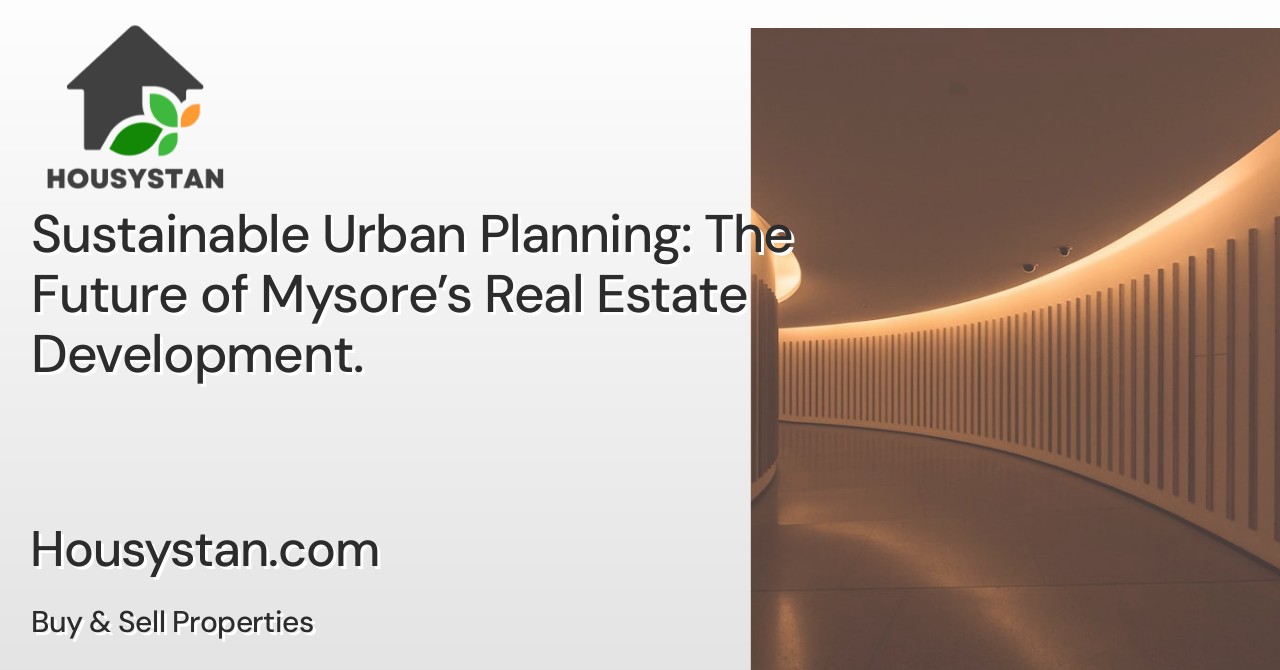Sustainable Urban Planning: The Future of Mysore’s Real Estate Development
Read latest blogs and articles from Housystan

The Information mentioned here was last updated on:
29/1/2026Sustainable Urban Planning: The Future of Mysore’s Real Estate Development
Mysore, a city renowned for its rich history and cultural heritage, is rapidly emerging as a front-runner in sustainable urban planning and environmentally responsible real estate development. As population growth accelerates and urbanization intensifies, there is an increasing demand for innovative strategies that balance economic progress with ecological well-being. Embracing sustainable urban planning not only enhances the quality of life for residents but also attracts environmentally conscious investors and homebuyers to Mysore’s expanding property market.
Modern Mysore real estate projects prioritize eco-friendly construction methods, green building materials, and energy-efficient infrastructure. Developers are integrating solar panels, rainwater harvesting systems, and waste management solutions into new housing complexes and commercial spaces. These initiatives help reduce the city’s carbon footprint, conserve vital resources, and ensure a healthier urban environment for present and future generations.
- Verified Tenants/Buyers
- Unlimited Property Listing
- Zero subscription/charges fee
Urban green spaces are another critical focus in Mysore’s sustainable development plans. Parks, gardens, and tree-lined avenues are being incorporated into residential layouts, promoting biodiversity and offering residents tranquil areas for recreation. Sustainable transportation options, such as cycling tracks and pedestrian-friendly pathways, are also being developed to reduce traffic congestion and air pollution.
Local government policies in Mysore support sustainable urban planning by encouraging mixed-use developments and zoning regulations that promote balanced land use. These measures help create vibrant neighborhoods where workplaces, schools, healthcare facilities, and retail hubs are conveniently accessible. This holistic approach not only minimizes daily commutes but also fosters a strong sense of community among residents.
As Mysore continues to grow, sustainable urban planning remains at the core of its real estate evolution. Adopting green technologies and smart city concepts positions Mysore as a model for environmentally conscious urban growth in Karnataka and beyond. Prospective homeowners and investors seeking long-term value and a better quality of life are increasingly drawn to Mysore’s sustainable developments, making the city a top destination for future-forward real estate opportunities.